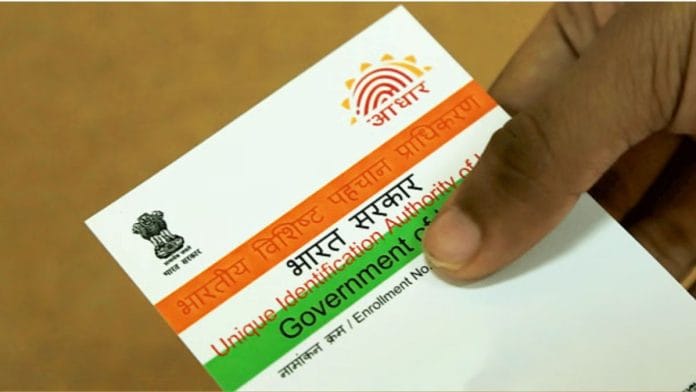Know Your Customer – KYC – is an important regulatory process through which banks and other financial institutions verify the identities of their customers to avoid money laundering, terrorist financing, and other criminal transactions. Formulated with the intent of protecting financial systems, KYC was meant to promote banking integrity while meeting global compliance requirements.
But what was originally an unavoidable security measure has now evolved into a cumbersome process—a species of tyranny exacted by the same institutions that exist to serve the public.
Banks have made KYC an excessive and intrusive procedure that seems more harassing than protective, breaking customer trust in the name of compliance with the regulator.
KYC now equals harassment
Last week, my father, a customer of the State Bank of India (SBI) since 1984, and a former Union minister and current Rajya Sabha member, experienced something that perfectly captures the increasing hassles that come with KYC processes.
The SBI Parliament Annexe branch started sending him regular SMS reminders to renew his KYC details. Despite submitting the required documents, which included his Delhi and Chennai address proofs, the bank informed him that his submission was incomplete and asked him to provide additional records. Frustrated by the stream of calls and messages, my father asked a representative from the bank to come over to his office and pick up the papers. To his surprise, the representative seemed unaware of what was needed. Having given all avenues of identification, such as his Aadhar card and passport, my father had a very torturous experience.
One of our colleagues in Delhi faced a similar trial.
He was bombarded with reminders to undertake a physical KYC at his local branch in Rajasthan. When he could not make the journey due to his hectic work schedule, his bank account was frozen—excluding him from accessing his own money. This is a stark case of what can only be termed as KYC blackmail, where customers are coerced into following an unnecessarily cumbersome and frequently unnecessary process.
Another colleague shared a deeply distressing story about his 80-year-old grandmother, Pramila Mukati, whose account was blocked simply because she was unable to complete a physical KYC—despite no changes to her account details. Mrs Mukati, due to obvious age-related physical limitations, couldn’t visit the bank without assistance.
The bank, however, continued to insist that she appear in person to complete the process, demonstrating a troubling absence of empathy and professionalism.
Such instances show how a simple procedure for confirming customer identity has turned into an onerous, bureaucratic one. Rather than being used for its original purpose of guaranteeing security and regulatory adherence, KYC has turned into a harassment mechanism—especially against vulnerable populations like the elderly, disabled, and those with stringent schedules or economic constraints.
Also read: RBI order restricting 4 NBFC operations lacks clarity. It won’t help customers, companies
Follow RBI guidelines
Against this backdrop, RBI Governor Sanjay Malhotra recently directed banks not to keep seeking KYC documents from customers over and over again. He stressed using a central database, so that banks could easily obtain the required information and lessen the burden on customers. Malhotra also stressed correct categorisation of customer complaints and overall quality improvement in consumer services to enhance confidence and maintain industry benchmarks.
Despite these guidelines being released, numerous banks are still not adhering. The employment of third-party vendors to conduct KYC processes is another issue, as they are known for bombarding customers with document requests without a proper understanding of what’s needed. It’s infuriating and poses a serious risk to sensitive personal data.
RBI’s directive is a step in the right direction, and banks must follow it strictly. Institutions that harass customers with repeated KYC requests or compromise data security should be punished severely. Third-party KYC service providers, too, should be thoroughly scrutinised to ensure customer data is kept securely and covered by legal privacy protections.
Though necessary for security, KYC has turned into a redundant burden. Banks need to adhere to RBI guidelines through stronger regulations, responsibility, and customer-oriented practices. The age of KYC harassment needs to pass.
Karti P Chidambaram is a Member of Parliament for Sivaganga, and a Member of the All India Congress Committee. His X handle is @KartiPC. Views are personal.
(Edited by Zoya Bhatti)







This KYC is a nightmare if you have two addresses or have some mismatch in even a single initial in your name! It is as if KYC process has been worked out for robots with assigned numeric values during their manufacturing process! I am stuck with my MF house KYC rejecting my KYC saying there is some mismatch!
All these procedures make the lives of genuine commoners a living hell while the one who commit fraud always have the resources to find a way out and continue to whatever they have been doing – kyc or no kyc!
Maximum government and minimum governance is the mantra of Modi Sarkaar.
Instead of forcing people to change names, drop initials in 10s of records simply allow initials in PAN database. It will save hassles to millions of South Indians
#easeofdoingbusiness #pmoindia
Ha Ha. Agreed that KYC is stupid but no less stupid was what this guy’s father had done in the past, when Finance minister. His stupid 1 in 6 rule ensured that even old widows, with a telephone in their name and income far below taxable limits had to start filing returns. Now getting a taste of his own medicine. What goes around comes around. Really nothing to choose. Ultimately all Indian governments are only out to harass the ordinary citizen whilst giving a free pass to those who can pay.
Dear Kartik,
You should understand why the process is sooo strict for the Chidambum family! It is Karma. You know – the loans your father asked banks to give to unscrupulous businessmen, the money he swindled etc. so stop cribbing and get on with the process